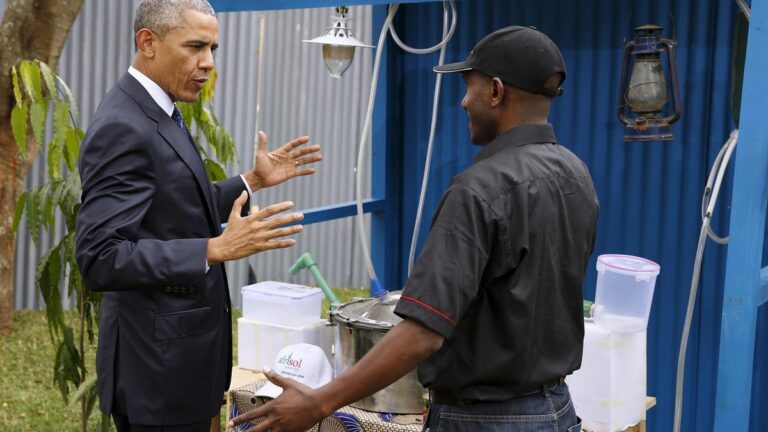
This year saw Africa climb up the global tech ladder to join the rest of the world in running an economy driven by innovation.
The 15th edition of the Global Innovation Index (pdf) released recently by the World Intellectual Property Organization (WIPO) ranks Mauritius, South Africa, and Morocco, which have significantly moved up closer to developed economies in the rankings over the past few years, as the most innovative African countries.
Morocco, Tunisia, Kenya, Tanzania, and Zimbabwe performed above expectations under the lower-middle income category while Rwanda, Madagascar (which has Africa’s fastest internet), Mozambique, and Burundi “outperformed on innovation relative to their development” in the low-income group.
South Africa exceeded expectations in the upper middle-income group while Mauritius performed within expectations in the same group. Ghana and Senegal’s innovation performance was in line with their economic development in the lower-middle income category, as well as Ethiopia, Uganda, Burkina Faso, Togo, and Niger in the low-income group.
The rest of the nations, including the continent’s biggest economy Nigeria and the highly innovative Botswana performed below expectations.
Guinea is the least innovative country this year in an index that surveyed 31 African countries. Compared to the rest of the world, Africa is still the least innovative continent.
World’s most innovative nations
The survey ranks Switzerland as the world’s top destination for innovation followed by the US, with China and G7 members Japan, France, Italy, and Canada failing to make it to the top 10 list.
What has ehnanced innovation in Africa in 2022
In past years, the continent significantly lagged behind in digital transformation, but covid-19, which forced many employees to work from their homes, acted as a much needed catalyst in building industries around frontier technologies.
Consequently, business leaders realized urgency in creating solutions around cloud computing uptake, blockchain development, and artificial intelligence while upskilling their staff on these technologies.
Telecommunication companies in Africa rolled out their 5G networks in 2022 and significantly reduced the cost of 4G mobile internet as social network Meta found 16 countries with a conducive environment for conducting metaverse tests.
Backed by a young, tech enthusiastic population, the continent had its largest smartphone shipment in history, as 5G smartphone sales surpassed 4G ones for the first time. More electric vehicles, and bikes also made their first trips on Africa’s roads this year.
This was also the year the continent launched a regional cybersecurity monitoring center, as most tech companies injected their investments in protecting Africa’s tech systems from cyber attacks.
More women also overcame barriers to join the African tech landscape this year. Open banking also started to take root in the continent this year.
And after years of banning crypto, many African nations are ending the year with either a crypto regulation in place or coming up early in 2023. Many central banks are also thinking along the lines of creating a retail Central Bank Digital Currency (CBDC), to follow in the footsteps of Nigeria.
The startup ecosystem is also projected to reach its its highest funding of $7 billion in 2022, as founders and innovators looked for more ways to solve the continent’s challenges.
“Seven of the top 10 most valued VC deals in Africa were in financial services. South Africa and Egypt both had three deals each in the top 10. Africa still saw the strongest growth in Q1 2022, an increase of 43.5%, relative to Q1 2021,” the report says.
The study cites WIOCC, a Mauritius-based company, which received $200 million of venture capital to enhance Africa’s digital infrastructure by expanding connectivity and open access data centers, and South Africa’s Yoco Technologies which received $83 million to offer simple card machines and online payment tools, as the continent’s top two indicators of a thriving startup ecosystem in 2022.
Why innovation scores dropped this year
Save for Botswana, Kenya, and Egypt, the rest of the countries recorded a decline in innovation scores this year compared to 2021.
Report authors Soumitra Dutta and Bruno Lanvin attribute this to the war in Ukraine which has seen developing countries receive the biggest economic shocks from the war.
“Whereas many of us were expecting growth and trade to pick up rapidly in a post-covid environment, geopolitical tensions have taken a new turn with the Russian Federation–Ukraine conflict and inflationary pressures are also making a global comeback,” they write in the survey.



